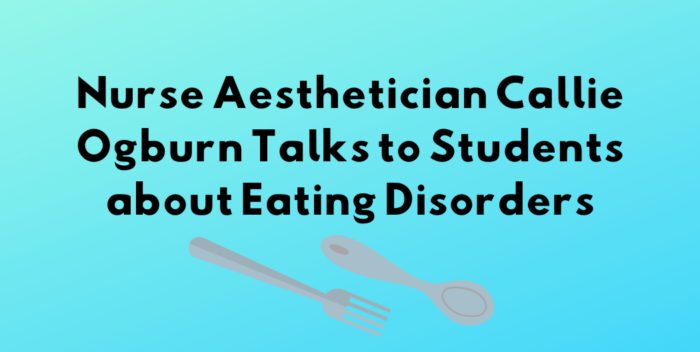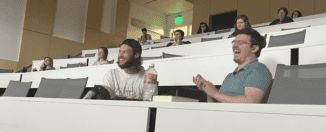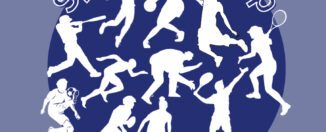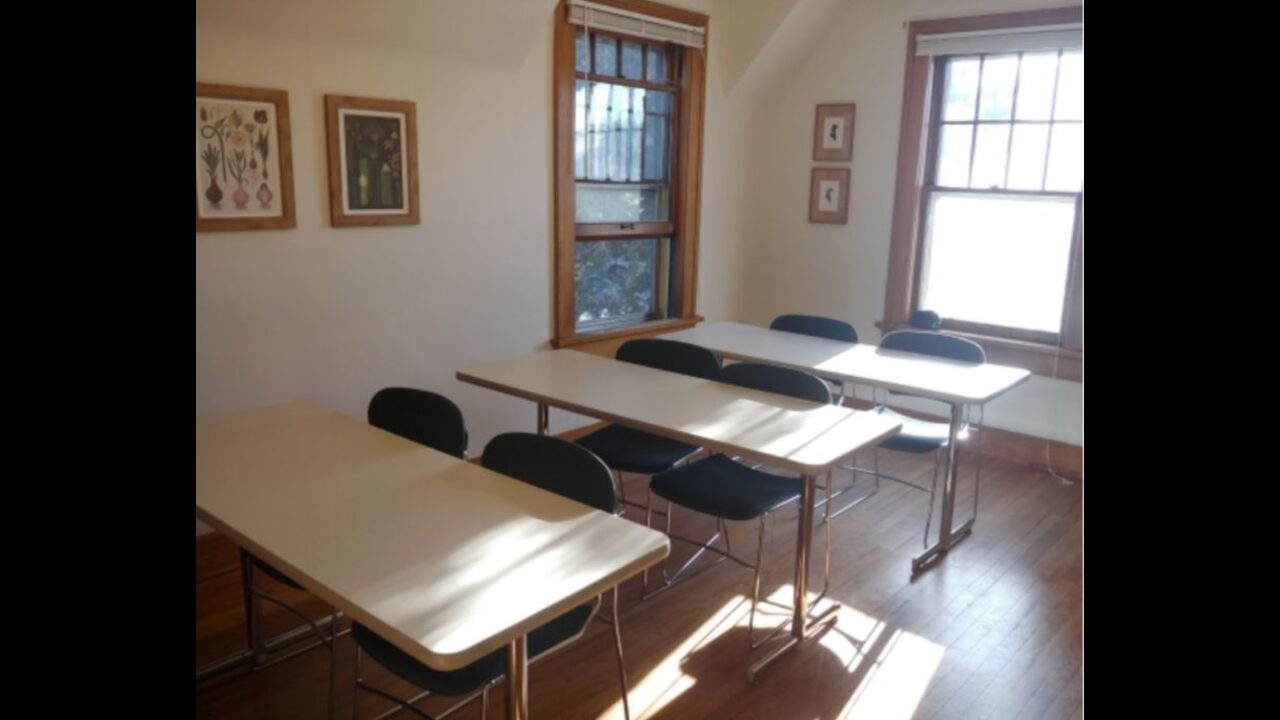Nurse Aesthetician Callie Ogburn Talks to Students about Eating Disorders
By Jetta Tegeler
Callie Ogburn, a nurse aesthetician from Omaha, talked to Concordia students about her experience with having an eating disorder, signs of an eating disorder and how to help someone with an eating disorder.
Ogburn’s eating disorder first started when she was in high school but got worse as she got older and went to nursing school. She had both anorexia and exercise bulimia. She would not eat and when she did, it would be small amounts of carrots and celery. If she ate more than that, she would feel guilty and work off every calorie she had consumed. She could not admit to herself that she had an eating disorder, but after she went to a counselor, she finally started to admit that she did have one.
“I was tired of lying,” Ogburn said. “I was tired of hiding.”
Eating disorders have the highest mortality rate of any mental illness. The three main types of eating disorders are anorexia, bulimia and binge eating. When someone has an eating disorder, seeing the weight drop from not eating provides positive reinforcement and makes them want to continue what they are doing.
“I thought this talk was very informative and made me aware of what people with eating disorders go through,” freshman Michelle Peterson said.
Some signs of an eating disorder to watch out for are skipping meals or avoiding eating, stealing food and scarred knuckles from bulimia. Early intervention is important and this can be done by encouraging them and having resources ready to help them. Google is one way to find many different resources. Some last ways to help include not being judgemental and not making comments on their weight.
“Your weight does not define you as a person,” Ogburn said.





















